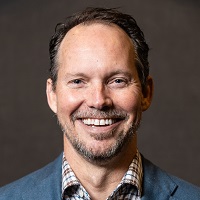How Savvy Is Your Financial Adviser? Three Ways to Find Out
Don't be afraid to ask your adviser if they're keeping up with industry developments and their own training. How else can you know they're giving good advice?


Profit and prosper with the best of Kiplinger's advice on investing, taxes, retirement, personal finance and much more. Delivered daily. Enter your email in the box and click Sign Me Up.
You are now subscribed
Your newsletter sign-up was successful
Want to add more newsletters?

Delivered daily
Kiplinger Today
Profit and prosper with the best of Kiplinger's advice on investing, taxes, retirement, personal finance and much more delivered daily. Smart money moves start here.

Sent five days a week
Kiplinger A Step Ahead
Get practical help to make better financial decisions in your everyday life, from spending to savings on top deals.

Delivered daily
Kiplinger Closing Bell
Get today's biggest financial and investing headlines delivered to your inbox every day the U.S. stock market is open.

Sent twice a week
Kiplinger Adviser Intel
Financial pros across the country share best practices and fresh tactics to preserve and grow your wealth.

Delivered weekly
Kiplinger Tax Tips
Trim your federal and state tax bills with practical tax-planning and tax-cutting strategies.

Sent twice a week
Kiplinger Retirement Tips
Your twice-a-week guide to planning and enjoying a financially secure and richly rewarding retirement

Sent bimonthly.
Kiplinger Adviser Angle
Insights for advisers, wealth managers and other financial professionals.

Sent twice a week
Kiplinger Investing Weekly
Your twice-a-week roundup of promising stocks, funds, companies and industries you should consider, ones you should avoid, and why.

Sent weekly for six weeks
Kiplinger Invest for Retirement
Your step-by-step six-part series on how to invest for retirement, from devising a successful strategy to exactly which investments to choose.
Achieving and maintaining confidence in your financial adviser’s professional skill set and knowledge is more than just a “nice-to-have” — it is critical to safeguarding your wealth.
As an investor, you rely heavily on your financial adviser’s experience and expertise, and you deserve the peace of mind that comes with fully trusting in their commitment to excellence. After all, your financial future is in their hands.
Given that not all advisers are equal, and because the sands of the financial landscape are constantly shifting, it is critical that you keep yourself informed. You need to unabashedly ask the right questions at the right time.
From just $107.88 $24.99 for Kiplinger Personal Finance
Become a smarter, better informed investor. Subscribe from just $107.88 $24.99, plus get up to 4 Special Issues

Sign up for Kiplinger’s Free Newsletters
Profit and prosper with the best of expert advice on investing, taxes, retirement, personal finance and more - straight to your e-mail.
Profit and prosper with the best of expert advice - straight to your e-mail.
Understanding your adviser’s relevant experience, qualifications and credentials is a good baseline, but you should also take pains to learn about their ongoing professional development and continuing education plans.
Investing in skills enhancement and ongoing education helps advisers stay updated on the latest industry trends and developments, ensuring they can offer relevant advice in dynamic market environments.
While standard training ensures basic compliance with regulatory and legal standards, it is important to know if your adviser is going “above and beyond” such mandatory licensure requirements. The voluntary pursuit of additional professional development demonstrates a strong commitment to excellence.
To help ensure you receive the most up-to-date and relevant financial guidance, you should actively and routinely inquire about your adviser’s ongoing education. Here are three key questions to help start that conversation:
1. Professional certifications
Do you hold any wealth management certifications?
Certifications provide evidence that a professional meets initial and ongoing standards of competency within an advisory practice or specialized role. There are many designations in financial services, but relatively few certification bodies enforce ongoing competency and ethics standards.
Certifications demonstrate that an adviser is familiar with relevant laws, regulations and industry best practices, as well as demonstrating the ethics and expertise required to deliver the highest level of service to clients.
For example, the Certified Financial Planner (CFP®) or Certified Private Wealth Advisor® (CPWA®) certifications indicate ongoing, comprehensive mastery of financial planning and wealth management respectively, setting apart those advisers who hold them from those who do not.
By ascertaining the quality of the certifications your adviser holds, you can better assess if they have the expertise necessary to meet your unique needs and specific financial goals.
2. Industry involvement
How actively engaged are you in industry associations, and how do you consume industry news and content?
Financial adviser industry associations are professional organizations that aim to support advisers through advocacy, education, networking and the establishment of ethical standards.
They represent the interests of their members to regulatory bodies, provide an ongoing stream of continuing education opportunities and foster a community of professionals dedicated to maintaining the highest standards of practice.
Advisers who actively participate in industry associations are positioning themselves to understand and capitalize on industry trends and emerging best practices.
They can also leverage access to a broad network of professional peers and educational resources to serve you better. Some associations your adviser may be involved with include:
- Financial Planning Association (FPA). A membership organization and trade association for CFP® professionals and those involved in the financial planning process. FPA provides advisers with professional development and practice management support through resources such as their FPA Business Hub and Carson Coaching programs.
- National Association of Personal Financial Advisors (NAPFA). An association for fee-only financial advisers that provides educational content and resources. Members can expand their network by leveraging initiatives such as NAPFA’s mentoring program, conversation circles and more.
- Investments & Wealth Institute. A leading professional association for financial advisers, investment consultants and wealth managers. It offers advanced certifications and elite continuing education solutions, including premier industry events, conferences, journals and online learning. Through the Institute, financial professionals are able to expand their knowledge and skills in real time.
Participation in the industry events and conferences that come along with industry association membership also allows advisers to learn from leading experts and engage directly with peers and thought leaders, further enriching the insights they bring to your financial planning.
You may also wish to find out which thought leaders your adviser follows closely, and where they get their daily news from. Which publications are they reading? Are they following any relevant podcasts? Do they engage with industry blogs, newsletters or social media channels that could provide insights? Do any of the associations they belong to provide practice management-oriented content?
Understanding your adviser’s involvement in industry associations and where they get their news from can give you a clearer picture of their approach to staying informed — and how it may influence their advice.
3. Specialized training
Have you undergone any specialized training, or certificate programs, relevant to your specific financial goals or unique circumstances?
While professional certifications are regarded as an important distinguishing factor for advisers, pursuing any particular one may not always be the best use of an adviser’s time and resources. Though similar in name to certifications, there is a more targeted, less time-intensive alternative: assessment-based certificate programs.
These programs can be beneficial for advisers who are looking to build specific areas of knowledge and, from a learning-requirement perspective, are shorter in duration.
For instance, programs provided by the Investments & Wealth Institute offer specialized training in areas like tax strategies, college and student loan planning, cryptocurrency and private markets.
The American College of Financial Services offers a Trust Certificate Program, as well as a Business Succession Planning Certificate.
Finally, the FPA has certificate programs focused on the Psychology of Financial Planning as well as the Elder Planning Specialist Program. These programs allow advisers to rapidly gain new expertise, enabling them to effectively address specific opportunities or challenges that arise.
Understand your responsibility
Ultimately, no one has a greater stake in your financial future than you do. Ensuring your adviser maintains their qualifications by keeping up with the latest industry trends, regulations and best practices isn’t just a suggestion; it’s a responsibility.
If you don’t ask the right questions, no one will ask them for you.
The financial world is evolving rapidly, and advisers who fail to keep pace risk leaving their clients vulnerable to outdated strategies and missed opportunities.
By proactively inquiring about your adviser’s certifications, industry involvement and specialized training, you take control of your financial well-being.
An adviser truly committed to their own professional growth is an adviser best equipped to protect and grow your wealth.
Related Content
- Financial Adviser Designations Are Not All the Same
- How to Find a Financial Adviser for Retirement Planning
- How to Change Financial Advisers
- Is Your Financial Adviser Listening to You?
- Should You Trust Robo-Advisers With Your Retirement?
Profit and prosper with the best of Kiplinger's advice on investing, taxes, retirement, personal finance and much more. Delivered daily. Enter your email in the box and click Sign Me Up.

As CEO, Sean is responsible for the overall management and success of the Institute, a global leading association in professional development and certification for the financial advice profession. Since 2010, Sean has been pivotal in protecting and advancing the Institute’s non-profit mission to be the leading educational community of financial professionals, dedicated to elevating investment and wealth management client outcomes.
-
 Quiz: Do You Know How to Avoid the "Medigap Trap?"
Quiz: Do You Know How to Avoid the "Medigap Trap?"Quiz Test your basic knowledge of the "Medigap Trap" in our quick quiz.
-
 5 Top Tax-Efficient Mutual Funds for Smarter Investing
5 Top Tax-Efficient Mutual Funds for Smarter InvestingMutual funds are many things, but "tax-friendly" usually isn't one of them. These are the exceptions.
-
 AI Sparks Existential Crisis for Software Stocks
AI Sparks Existential Crisis for Software StocksThe Kiplinger Letter Fears that SaaS subscription software could be rendered obsolete by artificial intelligence make investors jittery.
-
 Quiz: Do You Know How to Avoid the 'Medigap Trap?'
Quiz: Do You Know How to Avoid the 'Medigap Trap?'Quiz Test your basic knowledge of the "Medigap Trap" in our quick quiz.
-
 5 Top Tax-Efficient Mutual Funds for Smarter Investing
5 Top Tax-Efficient Mutual Funds for Smarter InvestingMutual funds are many things, but "tax-friendly" usually isn't one of them. These are the exceptions.
-
 Why Invest In Mutual Funds When ETFs Exist?
Why Invest In Mutual Funds When ETFs Exist?Exchange-traded funds are cheaper, more tax-efficient and more flexible. But don't put mutual funds out to pasture quite yet.
-
 We Retired at 62 With $6.1 Million. My Wife Wants to Make Large Donations, but I Want to Travel and Buy a Lake House.
We Retired at 62 With $6.1 Million. My Wife Wants to Make Large Donations, but I Want to Travel and Buy a Lake House.We are 62 and finally retired after decades of hard work. I see the lakehouse as an investment in our happiness.
-
 Social Security Break-Even Math Is Helpful, But Don't Let It Dictate When You'll File
Social Security Break-Even Math Is Helpful, But Don't Let It Dictate When You'll FileYour Social Security break-even age tells you how long you'd need to live for delaying to pay off, but shouldn't be the sole basis for deciding when to claim.
-
 I'm an Opportunity Zone Pro: This Is How to Deliver Roth-Like Tax-Free Growth (Without Contribution Limits)
I'm an Opportunity Zone Pro: This Is How to Deliver Roth-Like Tax-Free Growth (Without Contribution Limits)Investors who combine Roth IRAs, the gold standard of tax-free savings, with qualified opportunity funds could enjoy decades of tax-free growth.
-
 One of the Most Powerful Wealth-Building Moves a Woman Can Make: A Midcareer Pivot
One of the Most Powerful Wealth-Building Moves a Woman Can Make: A Midcareer PivotIf it feels like you can't sustain what you're doing for the next 20 years, it's time for an honest look at what's draining you and what energizes you.
-
 Stocks Make More Big Up and Down Moves: Stock Market Today
Stocks Make More Big Up and Down Moves: Stock Market TodayThe impact of revolutionary technology has replaced world-changing trade policy as the major variable for markets, with mixed results for sectors and stocks.